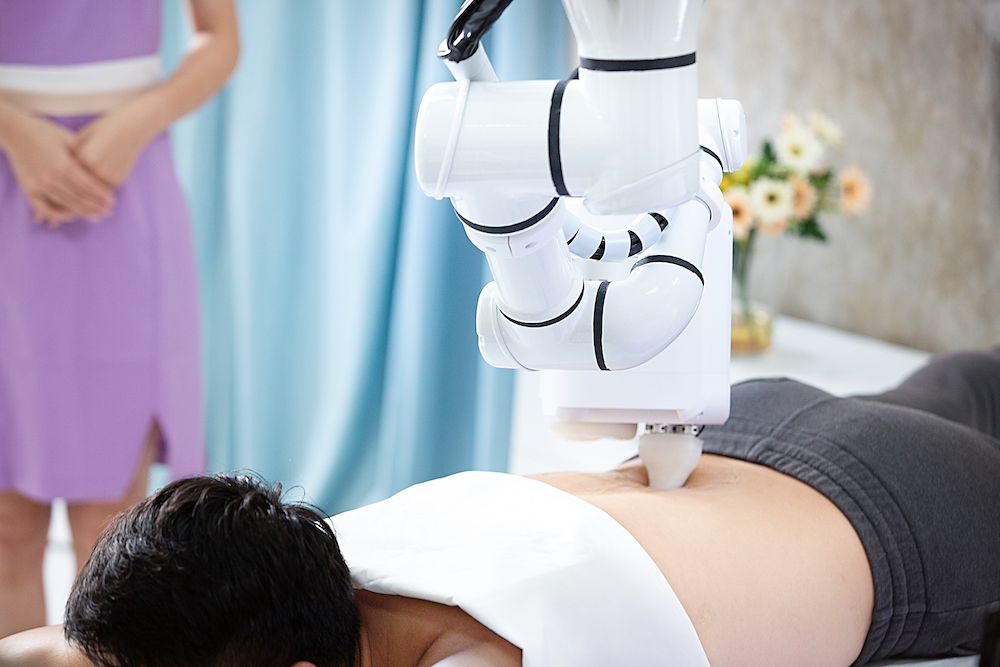Physiotherapy is the treatment of disease, injury, and disability by physical methods such as massages, heat treatments, as well as movement and exercise therapy. It helps restore a patient’s mobility and improve one’s overall strength and coordination. In 2012, Albert Zhang, a traditional Chinese medicine (TCM) physician, noticed there was a shortage of physical therapists in Singapore.
He then had the idea to build a robotic masseuse that can be used safely under the supervision of human operators. Zhang spent around three years researching the technology. In 2015, he met with Kai Liu, an electrical and electronic engineer, and they founded a startup called AiTreat, where Zhang serves as CEO and Liu as COO.
The firm developed a robot called EMMA, which stands for “expert manipulative massage automation.” It provides soft tissue therapeutic treatment to patients. EMMA is equipped with sensors to measure muscle stiffness and uses 3D vision technology to analyze the patient’s body. Based on the information processed by its artificial intelligence, the robot can determine the best course of action for patients and perform the massage.
EMMA can also detect physiological changes or abnormal motions and respond accordingly. With its accumulation of data, it can track and analyze patients’ progress for follow-up treatments.
“There are at least three benefits of EMMA. First, it gives a precision of position. Second, it ensures consistent treatment, unlike human therapists who are prone to be inconsistent. This way, the patients will receive the appropriate message or other treatments. Finally, the treatment is customized for every patient,” Liu told KrASIA.
“It took us one year to build a prototype to be presented in front of TCM physicians for pilot trials, as well as to potential investors. The product has received good reviews, and it was launched for commercialization in 2017,” Liu continued.
He added that there is great demand for robot masseuses. In Singapore, there are around 500 TCM clinics, 3,000 registered TCM physicians, and 1,764 physiotherapists who can benefit from AiTreat’s robots. The company now runs eight clinics that deploy 13 EMMAs. So far, the robots have altogether provided more than 15,000 treatments. The price for a treatment with EMMA ranges from SGD 80 to SGD 200 (USD 59 to USD 148).
The company currently collaborates with two clinics in the city-state and plans to form more partnerships with health centers and physicians. “We can customize the robot according to each clinic’s preferred treatments. In addition, we have our own enterprise resource planning (ERP) system that automates business processes, from storing patients’ records to scheduling consultations and treatments. We provide full solutions for clinic partners,” said Liu.
AiTreat’s clinics are already profitable. They generated roughly SGD 190,000 (USD 140,700) in monthly revenues in 2021. However, the firm is currently seeking investments to add more capabilities to EMMA.
“We want to go deeper and see how much value we can produce from the robot’s data, as we believe it can be useful for future clinical research,” Liu said. This year, AiTreat will develop new models of EMMA with attachments that offer other types of physiotherapy applications. Moreover, the company will open its first clinic in China in the second or third quarter of 2022, Liu said.
AiTreat was among the ten finalists of the Alibaba Cloud x KrASIA Global Startup Accelerator Singapore-Thailand Demo Day that was held on January 11.
